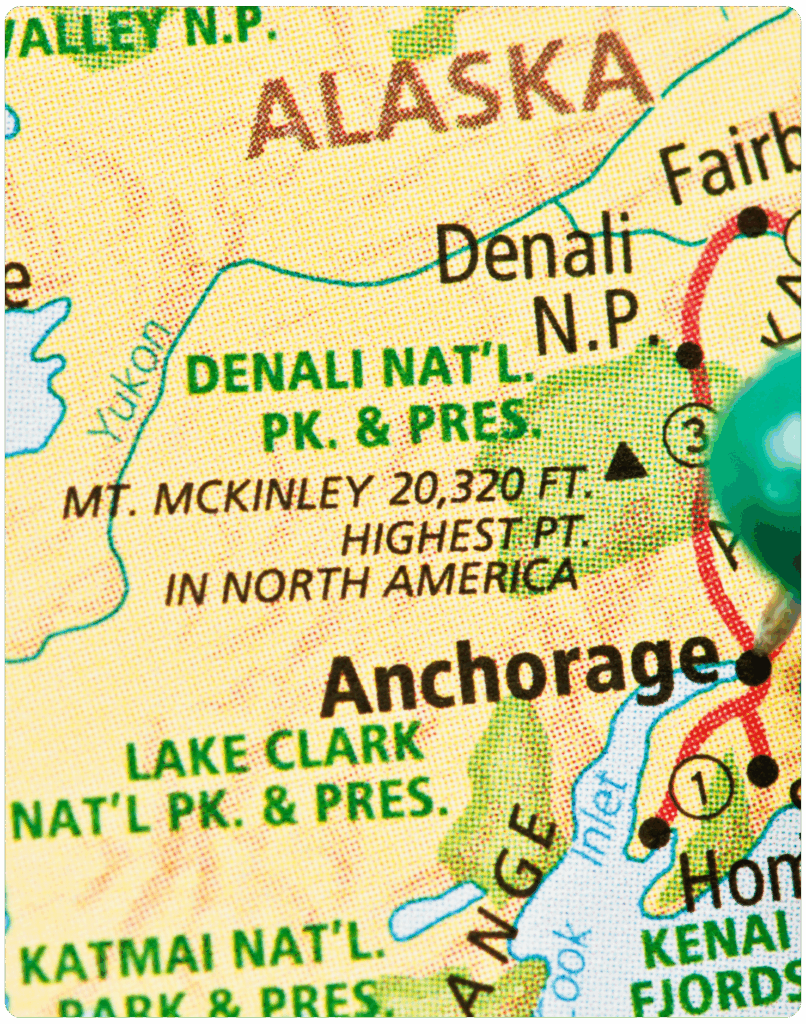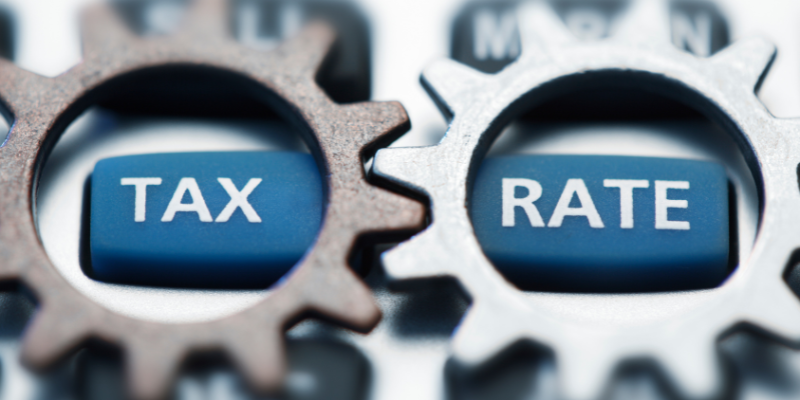
Nobody enjoys paying property taxes, yet Anchorage homeowners still find themselves sending checks to the municipality, though at least Alaska doesn’t add a state property tax on top. The tricky part isn’t the obligation itself, but understanding why your bill is the amount it is and whether the municipality calculated it correctly. Here’s a clear breakdown of how Anchorage property taxes work, so you’re not just blindly paying whatever number they hand you.
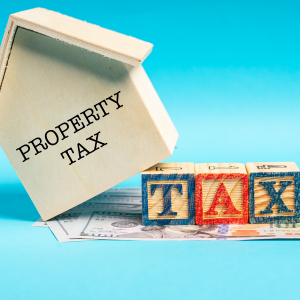
What is the Property Tax Rate in Anchorage, Alaska?
Right now, Anchorage charges 16.88 mills on residential properties. Before your eyes glaze over, that just means $16.88 per $1,000 of your home’s value. If you have a house assessed at $300,000, you’re paying about $5,064 a year.
One of the benefits of living in Alaska is that there’s no state property tax to consider. You pay the municipality, and that’s it. Your rate may be slightly higher or lower, depending on your neighborhood, especially if you’re in an area with additional services or special improvement districts. But these are just minor differences.
How Anchorage, Alaska, Real Estate Property Tax Rates Are Calculated
The municipality takes whatever they think your home is worth and multiplies it by the 16.88 mill rate. Quite simple, except for the part where they decide what your home is worth in the first place.
They don’t reassess every property every year because that would be chaos. Instead, they work through different neighborhoods on a schedule. Your area might get looked at this year, while your cousin across town won’t see an assessor for another three years.
And yes, when home prices rise (which they’ve been doing frequently lately), your tax bill increases right along with them, even if the rate remains unchanged.
Tax Assessment Process in Anchorage
The Municipality of Anchorage doesn’t just pull your property value out of thin air. They follow a process, even if it can sometimes feel unpredictable. Essentially, they estimate what your home would sell for if listed on the market today. That figure becomes your assessed value, something Anchorage cash buyers and surrounding Alaska cities often consider when making offers.
The assessment division has actual people doing this work. They review sales records and property data to derive numbers that hopefully reflect reality. Sometimes they nail it, sometimes they’re way off.
When and How Your Property Gets Assessed
The assessment division works through Anchorage on a rotating schedule. They hit different neighborhoods in different years. You’ll receive a notice in the mail when your property has been reassessed, usually sometime in the spring. That’s your heads up that the numbers might’ve changed.
They’re not sending someone to peek in your windows every year. Most assessments are conducted from their office, using sales data and property records they already have.
But every once in a while, especially if there’s been major construction or something looks off in their records, an actual assessor might visit your place to take a look around.
The entire process is designed to maintain assessed values within 10% of the actual market value. This sounds reasonable, but then home prices in Anchorage can swing significantly from one year to the next.
Factors That Impact Your Assessment Value
Several elements go into determining your property’s assessed value. Some are straightforward, while others may seem arbitrary. Your home’s square footage plays a role, as does the size of your lot, the age of your house, and the overall condition of the property. The Anchorage Home Buyers Team can help.
They’re trying to compare your place to similar homes that sold recently. This is ideal when you’ve got a standard three-bedroom ranch, but it gets difficult when your property’s a little unusual.
Property Size and Location
Square footage is significant. The bigger your house, the higher your assessment, and there’s no way around it. But location might matter even more than the actual size of your place.
A 2,000-square-foot house in South Addition is going to get assessed way higher than the same-size house in Mountain View, just because of where it sits on the map.
The municipality is aware of which neighborhoods are currently experiencing growth and which ones are struggling. Your assessment reflects whether you think it’s fair or not.
Age and Condition of Your Home
Newer homes typically get higher assessments because, well, everything works and nothing’s falling apart yet. If your roof has another 20 years left on it and your furnace isn’t from the ’80s, that counts in your favor when it comes to market value.
The municipality considers the age of your house and makes assumptions about its condition based on that age. They’re not always right. Many older homes in Anchorage are better maintained than brand-new construction, but that’s the baseline they’re working from.
Recent Sales of Comparable Properties
This is often the biggest factor and also the most frustrating for homeowners. When nearby homes sell for sky-high prices, your assessed value rises as well, even if you have no intention of selling. Cash home buyers in Bethel and other cities in Alaska frequently take this into account when evaluating properties.
The municipality looks at what buyers actually paid for similar homes in your neighborhood over the past year or so, and that heavily influences what they think your place is worth.
During hot markets when people are overpaying left and right, your assessment can increase significantly, even if your house remains unchanged from last year.
Improvements and Renovations
Did you finish that basement or add a new deck? Well, your assessment’s probably going up next time they look at your property. Significant improvements add value to your home, which means the municipality thinks it’s worth more now and wants to tax you accordingly.
Sometimes, they catch wind of the permits you pulled for the work. At other times, it appears during a reassessment when they notice that your property records don’t match what they’re seeing.
Small stuff like painting or replacing cabinets usually flies under the radar. However, anything structural or that adds square footage is fair game.
Anchorage’s Property Tax Rate Compared to Other Alaska Municipalities
Anchorage is located in the middle when compared to other parts of Alaska. Juneau hits homeowners harder, with a rate of around 18.14 mills, while Fairbanks comes in slightly lower, at around 15.90 mills.
If you really want to feel better about your Anchorage tax bill, just talk to someone in Valdez. They’re dealing with one of the highest rates in the state.
The interesting thing about Alaska is that these rates can vary from one place to another because each municipality is essentially autonomous. There’s no state property tax to maintain uniformity, so local governments set rates as needed to fund their services.
Smaller towns sometimes have higher rates because they have fewer people to spread the costs across. Meanwhile, bigger cities like Anchorage can keep things relatively reasonable.
Of course, “reasonable” is relative when you’re still writing a check for thousands of dollars every year.
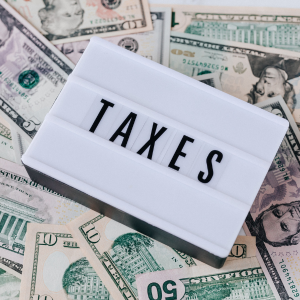
Property Tax Exemptions and Relief Programs in Anchorage
There are ways to lower your property tax bill if you qualify. You have to apply for them yourself, because the municipality won’t just hand you a discount. These exemptions can save you hundreds or even thousands of dollars a year. This is nothing to sneeze at when you’re already dealing with Alaska’s high cost of living.
Senior Citizen and Disabled Veteran Exemptions
If you’re 65 or older, you may be eligible for a reduction of up to $150,000 from your assessed value. This translates to real savings on your annual bill. The amount you save depends on your income. The less you make, the bigger the exemption.
Someone making under $35,000 a year gets the full $150,000 exemption. Meanwhile, higher earners get smaller amounts on a sliding scale until you hit around $107,300 in income, where you don’t qualify anymore.
That $150,000 exemption on a home assessed at $300,000 means you’re only paying taxes on $150,000. This cuts your bill basically in half.
Disabled veterans also receive their own exemption, which works similarly, based on their disability rating and income level. You must apply through the municipality and provide proof of your qualification. You will need to present documentation, such as your birth certificate or military discharge papers, to verify your identity. Once you’re approved, the exemption renews automatically each year, as long as your situation remains unchanged.
Note that you have to own the property and live in it as your primary residence. There are no exemptions for rental properties or second homes.
Homestead Exemptions Available in the Municipality
Alaska doesn’t have the traditional homestead exemption found in other states, where individuals receive a standard deduction simply for owning their home. However, Anchorage does offer an exemption for anyone 65 and older or those who are permanently disabled.
This function kind of resembles a homestead exemption, even though it doesn’t have that name. This is separate from the senior exemption and can actually stack with it if you qualify for both, which means you could be getting multiple breaks on the same property.
Just like the previous exemption, the property has to be your primary residence. You can’t claim this on a rental or vacation home. The municipality is quite strict about this and will verify that you’re actually living there full-time.
If you’re splitting your time between Alaska and somewhere warmer in the winter, you need to be able to prove that Anchorage is still your main home.
Low-Income Property Tax Relief
If you’re struggling financially, there’s a low-income exemption that can reduce your assessed value by up to $150,000, the same as the senior exemption. Your household income must be relatively low to qualify. It should be under $30,000 for a single person and slightly higher if you’ve got dependents.
The municipality recalculates eligibility every year based on your most recent tax return. That means you have to keep your income documentation current and reapply annually. It’s more paperwork than the senior exemption, but it’s worth it if you’re eligible.
Important Note: They’ll look at your total household income, not just yours. If you’ve got a working spouse or adult kids living with you who have jobs, that counts against you even if they’re not on the property deed.
Exemptions for Active Military Personnel
Active-duty military members stationed in Alaska can also receive some relief, although the exemption is smaller than that for seniors. You’re looking at up to $150,000 off your assessed value if you meet the income requirements, which are the same as the senior exemption.
You must be an Alaska resident, and the property must be your primary residence. This can be complicated if you’re military because the state considers you a resident based on where you claim residency for tax purposes, not just where you’re stationed.
It’s not a huge amount compared to what you’re probably paying overall. However, every bit helps when you’re trying to make military pay stretch in one of the most expensive states in the country.
For the application process, you just need your military ID and proof that you own and occupy the property. The municipality processes these requests efficiently, as it has extensive experience dealing with personnel from Joint Base Elmendorf-Richardson.
How Does Alaska’s Tax Structure Differ from Other States
Alaska does not have a state income tax, state sales tax, or state property tax. It’s basically the trifecta of what people dream about when they complain about taxes.
The state funds itself primarily through oil revenue. This is why Alaskans get that Permanent Fund Dividend check every year instead of writing checks to the state government—such a great deal when you think about it.
However, just because the state isn’t taxing you doesn’t mean you’re getting off easy. Municipalities like Anchorage make up for it with higher local property taxes and sales taxes than you’d see in states with more balanced tax systems.
Some boroughs in Alaska have sales taxes up around 7% and your property tax rate might be higher than what you’d pay in a state that has income tax to help fund services.
Plus, the cost of living in Alaska is already ridiculous, so even without state income tax, your money doesn’t stretch as far as you’d hope. The lack of state taxes is definitely a perk, especially if you’re earning a good income. However, it’s not as if living here is cheap simply because the state government isn’t taking a cut of your paycheck.
What Your Anchorage Property Taxes Fund
Your property taxes essentially cover the costs of everything that makes Anchorage function as a city. Schools get the biggest chunk. Nearly half of the property tax revenue goes directly to the Anchorage School District to support teacher salaries and building maintenance. After that, you’ve got a whole list of services that keep the city from falling apart:
- Public safety, including police, fire departments, and emergency services
- Road maintenance and snow removal (snow removal is no joke in Anchorage)
- Parks, trails, and recreational facilities
- Public libraries and community centers
- Public transit and transportation infrastructure
- Animal control services
- Building inspections and code enforcement
- Economic development programs
- Debt service on bonds for significant infrastructure projects like bridges and water treatment facilities
The municipality publishes a budget every year that breaks down exactly where the money goes, but most people don’t read it because, honestly, it’s pretty dull.
The short version is that your tax dollars keep the city running. When the budget gets tight, you’ll hear about it in the form of reduced services or higher rates.
Payment Deadlines and Options
Anchorage offers you a couple of options to handle your property tax bill, and the dates are essential because missing them will result in additional costs.
The first half is due June 30th, and the second half is due October 31st. You can knock out the whole thing in June if you’re the type who likes to rip the band-aid off, or you can split it up and deal with it twice.
Neither way is wrong. Some people would rather get it done and forget about it, while others want to hang onto their cash as long as possible.
When you blow past a deadline, the municipality imposes a 7% interest rate plus a 5% penalty immediately. It keeps building from there. Not fun for sure.
You can pay online, mail a check, or walk into the tax office if you’re old school about it. Honestly, though, most people who have mortgages just let their lender handle it through escrow.
The bank takes a portion of your monthly payment, sets it aside, and pays the municipality when the bill’s due. One less thing to remember, one less chance to accidentally blow past the deadline and end up paying penalties.
What Happens If You Can’t Pay Your Real Estate Taxes
Your house isn’t going to disappear overnight if you skip your property tax payment, but it will cause problems. The municipality doesn’t forget about the money you owe them. They just start adding penalties and interest until you either pay up or they take more serious action.
Every month you don’t pay, that bill gets bigger. Before you know it, you’re staring at a number that’s way worse than what you originally owed.
The municipality will eventually place a tax lien on your property after a sufficient number of unpaid bills accumulate. You can’t sell your place with a lien on it. Can’t refinance either. You’re stuck until you clear the debt.
Things can get dire after multiple years of nonpayment. The municipality can actually foreclose and take your house. They don’t jump straight to that because it’s a hassle for everyone involved, but it does happen.
If you’re having trouble paying, contact the municipality before missing a payment. They offer payment plans and may be more understanding if you’re upfront about it, rather than just ghosting them and hoping it goes away.
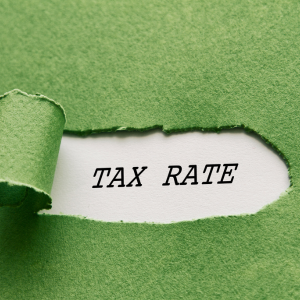
How to Challenge Your Tax Assessment in Anchorage
If you believe the municipality miscalculated your property assessment, you don’t have to accept their number. You have the right to appeal, and many Anchorage homeowners challenge their assessed values each year when they feel it’s far higher than what their home would realistically sell for. Here’s how Anchorage Home Buyers can help.
Here’s how to fight your assessment:
- Grab your assessment notice the moment it arrives and compare the value to recent sales in your neighborhood. If it’s way higher than what similar homes sold for, you’ve got a case.
- File your appeal with the Board of Equalization before the deadline, typically 30 days from the date your notice was mailed.
- Gather evidence, such as recent comparable sales, photos of damage or issues with your property, and repair estimates.
- Show up to your hearing prepared to make your case with all your documentation.
- Wait for the Board’s decision. This usually comes within a few weeks.
If thousands of dollars legitimately inflate your assessment, you could save yourself a chunk of money every year. Worth the effort.
Recent Changes to the Property Tax Rate in Anchorage, Alaska
Anchorage’s property tax rate has remained relatively stable over the past few years. It’s been holding at 16.88 mills for the past couple of years. That doesn’t mean your actual bill stayed the same, though. When property values go up, you’re paying more even if the rate doesn’t budge.
The municipality has been threatening to raise the rate during budget talks, but so far, it has avoided doing so by cutting services and reallocating funds.
The bigger changes have been in assessments. The municipality’s been working through a revaluation cycle that’s hitting different neighborhoods hard. Some areas are seeing jumps of 20% or more in assessed values.
Eagle River was recently hit hard, while South Anchorage has seen steadier but still significant increases. They also adjusted exemption programs slightly. They raised income limits so more people can qualify for senior and low-income relief.
Tips for Budgeting Your Anchorage, Alaska Property Tax Rate
Paying for property taxes can really be hard when you’re not ready for them. You need to plan to make your life way easier. You know the bill’s coming every year, so why not act like it?
Set Aside Money Monthly
Break that annual tax bill into 12 chunks and stash that amount away every single month. Sounds simple because it is. Got a $5,000 tax bill? Put away about $420 a month, and you won’t be scrambling when June rolls around.
Most people with mortgages already do this through escrow without thinking about it. However, if you own your place outright, you’ll need to manage your own escrow account.
Take Advantage of Early Payment Discounts
Some years, the municipality offers a small discount if you pay the whole year up front by a specific date. It’s not always available, and it’s never a huge amount, but hey, a couple of hundred bucks is a couple of hundred bucks.
Check the municipality’s website or your tax notice to see if they’re running any early payment deals.
Review Your Assessment Annually
Don’t just toss that assessment notice in a drawer when it shows up. Actually, look at it. Compare it to what homes in your neighborhood are selling for.
If something seems off, you’ve got time to appeal before the deadline passes. Catching an inflated assessment early saves you money for years.
Plan for Potential Rate Increases
The rate’s been stable lately, but that doesn’t mean it’ll stay that way forever. The municipality’s always looking for more revenue, especially when oil prices tank and state funding gets tight.
Assume your tax bill might go up 3% to 5% any given year and budget accordingly. Better to have extra money left over than come up short.
Key Takeaways: Anchorage, Alaska Property Tax Rate
Anchorage property taxes aren’t going anywhere. The 16.88 mill rate applies to your assessed value, which the municipality updates on a rolling schedule based on market conditions and property factors. You’ve got exemptions available if you’re a senior, veteran, low-income, or active military, and those can seriously cut your bill if you qualify.
If property taxes are becoming too much to handle or you’re ready to move on from your Anchorage home without the stress of a traditional sale, Anchorage Home Buyers can help. We buy houses for cash in any condition and take care of all the details so you can walk away clean. Contact us at (907) 331-4472 or complete the form below to receive a fair cash offer on your property today.
Helpful Anchorage Blog Articles
- What Taxes Do I Have To Pay When I Sell My House In Anchorage, AK
- Anchorage, AK Capital Gains Tax Calculator 2025
- Anchorage, AK closing costs calculator
- Anchorage, Alaska Cost of Living: Is It Affordable?
- Anchorage, Alaska Property Tax Rate
- Paperwork for Selling a House in Anchorage, AK
- Can an Executor of the Will Sell a property in Anchorage, AK?
- How to Sell an Apartment in Anchorage, AK
- Should I Replace My Roof Before I Sell My House in Anchorage, AK?
- Do I Need to Paint My House in Anchorage, AK, to Sell It?
- Do I Need a Lawyer to Sell My House in Anchorage, AK
- How Can Heir Property Be Sold in Anchorage, AK?
